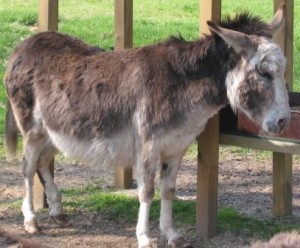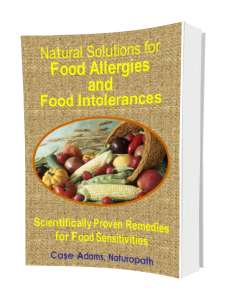Donkey Milk Good Alternative for Cow’s Milk Allergy
Is donkey milk a good alternative to cow’s milk for those who have cow’s milk allergies?
Surely, if you or your child has a cow’s milk allergy, you might want to know if there is an alternative to soymilk, almond milk and other plant-based milks. Not that these plant-based milks are not good for you. Most of them have a number of health-giving properties.
And the fact of the matter is that cow’s milk increases the risk of allergies in children. Especially pasteurized cow’s milk. And food allergies are increasing in Western countries according to other research.
In this article
But what about donkey milk?
Researchers from the Pediatric and Adolescence research center of Italy’s Regina Margherita Children’s Hospital tested children who were allergic to cow’s milk and other food allergies by feeding them donkey milk. Did it work?
The researchers tested children who had problems with being breastfed, and had cow’s milk allergy and other food allergies that limited the options for the child in terms of feeding. These restrictions were creating nutritional deficiencies among the children.
During the first phase of the study the children were put on a cow’s milk elimination diet – meaning cow’s milk was withheld from their diets. Breastfeeding was not available for the children as well.
The children were then tested with a double-blind food challenge to confirm their allergies to milk. They found that all had cow’s milk allergy, and 89% had other food allergies.
The children were given the donkey milk to drink and they were given skin prick tests to gauge whether the allergic children had any sensitivities to donkey milk.
Over 90% of the allergic children not only tolerated the donkey milk: They liked the taste of it. The researchers also found these children had no sensitivities to donkey milk when tested with skin prick testing.
The children who tolerated the donkey milk continued to consume it, and the researchers followed up and retested the children, and found that they continued to tolerate it well.
Learn more natural strategies for food allergies and cow’s milk allergies:
Donkey milk provides good nutrition
The researchers also found that those children who consumed the donkey milk also benefited nutritionally from the milk – their growth and development improved significantly over their previous conditions.
The scientists concluded that, “Donkey milk was found to be a valid alternative foodstuff, in terms of clinical tolerability, palatability and nutritional adequacy, in subjects with cow’s milk allergy who were highly problematic from the feeding standpoint.”
This result confirms another study done a few years ago, where 83% of cow’s milk allergy children could tolerate donkey milk.
Milk provides critical nutrients to children, as they utilize the essential fatty acids and special tryglycerides called triacyglycerols – specifically of the middle chain length. These middle chain triglycerides (MCTs) provide ketones that are processed through the liver and utilized by brain and nerve cells.
Milk also contains special sugars that are prebiotic to our intestinal probiotics. These are called galactooligosaccharides or GOS. Without these important sugars, the intestines of infants can starve whatever probiotics are there.
And probiotics is also a critical part of an infant’s diet. These are delivered to the infant’s digestive tract through breastfeeding or other sources of raw milk. The mother or surrogate supplies these important probiotics and delivers not only the baby’s future intestinal future, but the baby’s future immunity.
In the absence or shortfall of breastfeeding, cow’s milk has provided some backup for many parents for centuries, but research has shown that children can become sensitive to the bovine beta-lactoglobulin from cow’s milk. This can especially be an issue with pasteurized milk as probiotics in raw milk tend to break down beta-lactoglobulin.
In fact, the children in the Turin study were primarily allergic to the bovine beta-lactoglobulin molecule.
Breast milk and donkey milk do not contain bovine beta-lactoglobulin.
Another strategy that has a long tradition among mothers is sharing breast milk among lactating mothers – often called wet nursing or surrogacy. Today tested breast milk banks are found throughout North America, where lactating mothers contribute their breast milk for the benefit of others.
REFERENCES:
Monti G, Viola S, Baro C, Cresi F, Tovo PA, Moro G, Ferrero MP, Conti A, Bertino E. Tolerability of donkey’s milk in 92 highly-problematic cow’s milk allergic children. J Biol Regul Homeost Agents. 2012 Jul-Sep;26(3 Suppl):75-82.
Monti G, Bertino E, Muratore MC, Coscia A, Cresi F, Silvestro L, Fabris C, Fortunato D, Giuffrida MG, Conti A. Efficacy of donkey’s milk in treating cow’s milk allergic children: an in vivo and in vitro study. Pediatr Allergy Immunol. 2007 May;18(3):258-64.
Adams, C. NATURAL SOLUTIONS FOR FOOD ALLERGIES AND FOOD INTOLERANCES: Scientifically Proven Remedies for Food Sensitivities. Logical Books, 2012.
















